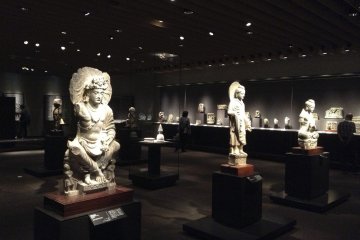
Uncover Historic Treasure at Tokyo National Museum
Takane ShojiThe Louvre or the MET aren't the only world's superstar museums. The Tokyo National Museum is surely a worthy competitor - most certainly a worthy visit as well.

The Tokyo National Museum is the oldest national museum and largest art museum in Japan, is located directly on Ueno Park and goes back to an exhibition in the Yushima Seido Temple from 1872. As one of the largest art museums in the world, it collects, conserves, repairs and manages a large number cultural artifacts of artistic and archaeological importance from Japan and the Far East.
To promote understanding of the arts, the Tokyo National Museum holds exhibitions, conducts scientific research, and conducts educational events. The museum's holdings comprise around 120,000 objects (including 89 national treasures and 646 important cultural artefacts), making it the most important collection in Japan in terms of both size and quality. Four thousand exhibits can be seen permanently in the permanent exhibition.
Ten minutes' walk from Ueno or Uguisudani Station.

The Louvre or the MET aren't the only world's superstar museums. The Tokyo National Museum is surely a worthy competitor - most certainly a worthy visit as well.
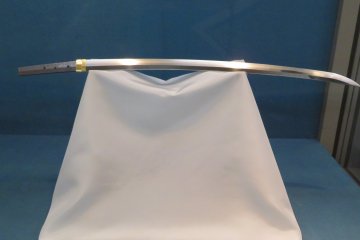
An excellent Japan history lesson before you begin to travel the country.

Following the path of Buddhism from India to Japan
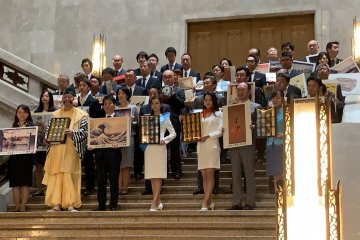
Tokyo National Museum and Mitsukoshi Isetan collaborated to create gifts for the Ochugen gift giving season. The event showcased gifts decorated with famous Japanese artworks.
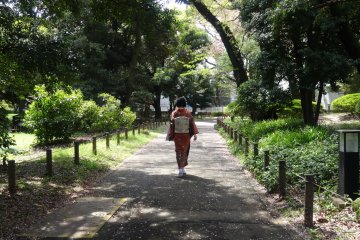
The garden at the Tokyo National Museum is only open for a few weeks a year and makes for a peaceful springtime stroll.

The Tokyo National Museum in Ueno is hosting a collection of netsuke toggle crafts by the late Prince Takamado. The exhibition runs until late July.
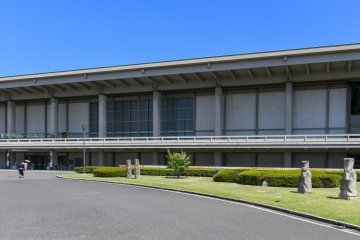
The 'Man, God & Nature in the Ancient World' exhibition is being held until early February at the Toyokan Asian Gallery at Tokyo National Museum in Ueno. The works are from the private collection of Sheikh Hamad bin Abdullah Al Thani, a prince of the Qatari royal family.

Tokyo National Museum is a treasure trove of Japanese arts, including many designated National Treasures.
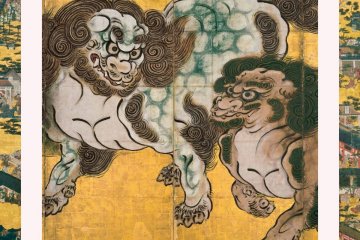
The Azuchi-Momoyama period was the 30 year timeframe from the fall of the Muromachi shogunate in 1573 until the establishment of the Edo shogunate in 1603. A special exhibition at the Tokyo National Museum is showcasing around 230 works from this period.

A special three-part exhibition is taking place at the Tokyo National Museum, the National Museum of Nature and Science, and the National Archives of Modern Architecture, dedicated to Japanese architecture - specifically the traditional skills and natural materials used.
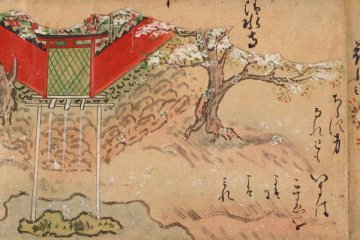
A special exhibition taking place at the Tokyo National Museum this spring offers a unique way to celebrate the arrival of sakura season - through the beauty of art. A range of different cherry blossom themed works in different mediums will be on display at the event.

Each year on March 3rd in Japan, many families display intricate dolls in celebration of hinamatsuri, or Girls' Day. A special event taking place at the Tokyo National Museum until March 21st will explore these dolls in more detail, with a variety of them on display.
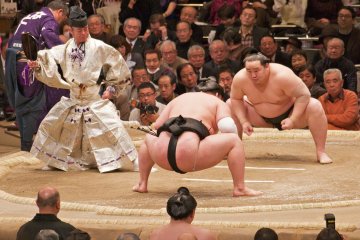
In commemoration of the Tokyo 2020 Olympics and Paralympics, an exhibition at the Tokyo National Museum will introduce the history and culture of sports in Japan.
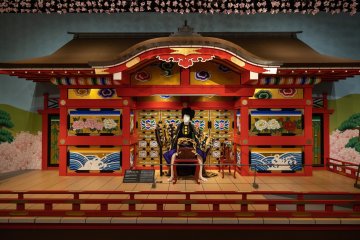
A stunning new exhibition at Tokyo National Museum highlights the artisanship, history, culture and legacy of five traditional Japanese performing arts. Japan is a country fizzing with culture from the streets and small art spaces which are located in each and every prefecture to the giant and storied institutions and museums which have been serving as cultural hubs for decades. Led by the Agency for Cultural Affairs and the Japan Arts Council, Japan Cultural Expo is a collaborative, inter-agency project drawing on the cooperation of numerous public and private-sector partners which aims at showcasing the best of Japanese arts and culture and due to its VIRTUAL PLATFORM it is available to people all over the world. This platform combines experiences at physical venues and “virtual” experiences through online digital content, promoting these within Japan and beyond. Japan Cultural Expo VIRTUAL PLATFORM allows everyone to experience its art exhibitions, performing arts, nature and art festivals in the virtual world, utilizing video, VR and images. Junko Kawamura, Japan Arts Council President, in a recent interview with Japan Travel says, "We’re hoping that as many people as possible will enjoy Japanese culture at Japan Cultural Expo and although it has been difficult because of Covid we’re also hoping that this will offer a place for exchange as well." [photo id='229601'] One of the latest blockbuster exhibitions which is currently taking place at the Tokyo National Museum in Ueno is "UNESCO Intangible Cultural Heritage Special Exhibition: The World of Traditional Performing Arts." Located in the majestic Hyokeikan building, this exhibition is a reflection of the cultural scheduling of Japan Cultural Expo and its relationship with other National Theaters which are located throughout the country. "So, in this exhibition we are showcasing the five traditional performing arts which are also registered as UNESCO intangible cultural heritages and the architecture of Tokyo National Museum, which is also a cultural treasure itself," adds Kawamura-san. "So what we’re trying to do is to introduce intangible cultural assets inside a tangible cultural asset. One of the main features is that we have brought performing arts that are performed in five different theaters all together to exist in Tokyo National Museum." The five traditional performing arts that Kawamura-san refers to and which are showcased at this new exhibition are Kabuki, Bunraku, Noh and Kyogen, Gagaku and Kumiodori. Together these artforms represent the centuries of history, distinctive visual and musical aesthetics and a devotion to artisanship and traditions that are kept alive by performers, many of whom inherited their love for performing arts from their ancestors who have passed down the skills and devotion to these living cultural treasures. Located in Hyokeikan, each performing art has its own space or room which instructs visitors about the history, etiquette and nature of each particular artform. [photo id='229600'] Utilizing sublime costumes, actual stages, props, set design and video, visitors are able to come face to face with Kabuki, Bunraku, Noh and Kyogen, Gagaku and Kumiodori and feel and embrace their uniqueness and cultural values. [photo id='229599'] Some of the highlights and vibrant examples of the craftsmanship involved in these artforms are the colorful and superbly preserved bingata costumes involved in the Okinawan Kumiodori performances and the display of wooden puppetry which goes into Bunraku performances from the stages of creating these majestic creations to the different character faces which are unforgettable. [photo id='229597'] Kawamura-san explains: "And these traditional performing arts are still performed even in the present times as classics, and that is because, for one thing, acting or performing methods have been passed on for several hundred years. But not only that, their costumes, stage settings, props or wigs, or even techniques to handle performer’s wigs—the technician is called tokoyama in Japanese—and those things and techniques have also been passed on for several hundred years. And these skills have also been recognised by Japan as techniques that support the important cultural treasures. Here again you can also find nature in, for example, different titles or costumes of these traditional performers." Other programs which are participating in Japan Cultural Expo include Noh/Kyogen performances at the National Noh Theatre throughout March and a series of not-to-be-missed performances of a masterpiece of Kabuki, "Omi Genji Senjin Yakata" which runs from March 3 to March 27 at the National Theatre and which has a handy English synopsis available for visitors. [photo id='229598'] With the slogan "Art moves us all" Japan Cultural Expo and its multifarious affiliated programs aim to bring Japanese culture to the fore with an eclectic mix of exhibitions and events for both those in the country and for those overseas. With a comprehensive events listing page, the interactive VIRTUAL PLATFORM source, digital galleries and interviews with practitioners it's a veritable one-stop resource for Japanese culture. "UNESCO Intangible Cultural Heritage Special Exhibition: The World of Traditional Performing Arts" is a thoroughly comprehensive look of the five major Japanese performing arts and places you intimately in the actual spaces and stages used for these arts. The stunning costumes, artisanship and history which complete these performing arts are there for all to see and you could easily lose yourself in this magical world of performance and tradition. Guide yourself through the individual rooms and immerse yourself in the world of Japanese performing arts and perhaps you will see Japan, again, through a different and more culturally enlightened lens.
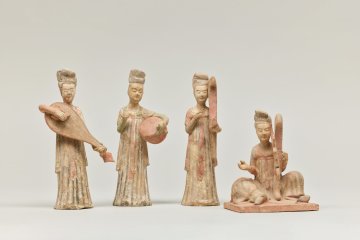
A special exhibition coming to the Tokyo National Museum is set to explore party-related Asian arts, crafts, and archeological relics. There will also be some art-themed lectures that visitors can attend on certain dates.

From January 2nd to January 26th, the Tokyo National Museum invites visitors to explore all things slithering with their New Year's Celebration exhibition. This event commemorates the Year of the Snake with an array of snake-inspired works from various eras and regions.

NOHGA HOTEL AKIHABARA TOKYO is conveniently located in the midst of the electric town Akihabara, also known as the capital of manga and anime. In addition, this neighborhood has an abundance of tech shops, maid cafes and a variety of restaurants. With just a 6-minute walk away from Akihabara station, it provides easy access to explore other areas nearby such as Ueno and Asakusa. This hotel embodies the rich cultures of music, art and food. Nohga’s concept of music is derived from Akihabara’s local history, starting as a district of radio and wireless component merchants in the late 1920s. The artistic and luxurious space throughout the hotel is achieved by featuring art and amenities designed in collaboration with craftsmen from around Japan. As for the food menu, it’s seasonal fresh ingredients are sourced domestically. The glasses and dinnerware served are collaborations with stores in the surrounding area. All 120 non-smoking guest rooms feature an ensuite bathroom with a rain shower, in-room safety box, mini fridge, USB plugs, free Wi-Fi, a high-quality bluetooth speaker and flatscreen TV with original music and film. The lounge area and a compact 24-hour gym can be found near the reception on the second floor. Services include laundry (from 2,750JPY) and a 24-hour front desk with a check-in time of 3PM and check-out time of 11AM. For sightseeing you can rent a Tokyobike for the day (2,000 JPY/day) to explore the vicinity.
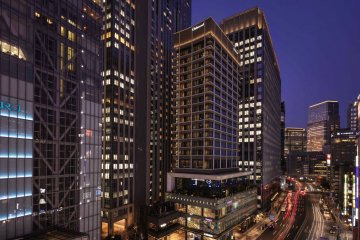
Oakwood Premier Tokyo comes from a brand of standout luxury hotel & service apartments right at the heart of the Tokyo metropolis. It is located in the business hub of Marunouchi with JR Tokyo Station in close proximity. This will allow guests and travelers to easily access the city's extensive transport network and visit various landmarks such as Imperial Palace, Tsukiji Fish Market, Ginza and Shopping District. Boasting 123 luxurious apartments on the upper floors of a multi-serviced complex, each room offers a magnificent view of the city, not to mention all furnished and a fully-equipped kitchen set which is rarely seen in your everyday service apartment. Without doubt, these spacious tranquil retreats are curated to give you the amenities and services of a luxury hotel and a feeling of home. They are good options for both business executives and leisure travelers from one night of a short-stay to a few weeks/months of mid-to-long-term stay.
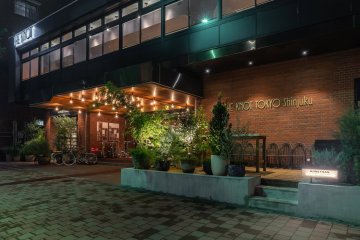
Located right next to Shinjuku Chuo Park, THE KNOT TOKYO Shinjuku is a modern hotel with an exceptional design and easy access to the nearby Shinjuku train station and the Meiji Shrine. The 14-story hotel building was renovated and reopened in August 2018 as THE KNOT TOKYO Shinjuku . The western-style rooms offer a park view on the top floor as well as a newly opened terrace suite. The spacious atrium design offers a relaxed atmosphere and connects the restaurant, bar, lounge and lobby with one another. One of the highlights of THE KNOT is the delicious dishes. There are six areas in which food and drinks are offered. From the grill area to high-quality black tea and fresh bread, everything is on offer.
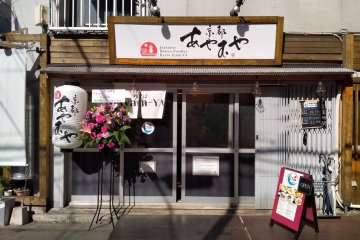
Ayam-YA is a certified halal ramen restaurant found in the Okachimachi area of Tokyo, between Asakusa and Ueno, and not far from Assalaam Mosque. A sister branch in Kyoto also exists.

Bunny Cafe Moff Rell in Tokyo's Chiyoda Ward offers a chance to interact with adorable rabbits. You can make reservations for the cafe by phone, or you can visit and pay at the store before entering. The cafe provides 30- and 60-minute courses, and you can play with or feed the bunnies. If you are unsure about how to treat the rabbits, don't worry! The staff members will kindly explain everything to you. Minimum age is 10 years old.

PIZZERIA & BAR NOHGA is an all day dining restaurant interpreting a fusion of “Spanish Italian” cuisine and has a kitchen to table design. There is a casual bar area and restaurant where you can take a peek inside the open kitchen whilst enjoying your meal. Visit the cafe for a range of coffees and teas along with an offering of tapas snacks and seasonal desserts. The cafe also offers an assorted dessert and all-you-can-drink cafe set. Breakfast takes on the art of sharing, where a range of platters are combined with focaccia and your choice of eggs cooked your way. Coming for lunch? Choose from a selection of pizzas, pastas and salads. Each lunch menu is accompanied with homemade soup, iced tea and focaccia. Dinner time offers a range of exquisite tapas and pizzas that can also be shared. Breakfast: 07:00 - 10:00, Lunch 11:30 - 14:30, Cafe 14:30 - 18:00, Dinner: 18:00 - 23:00 with last order at 10pm.
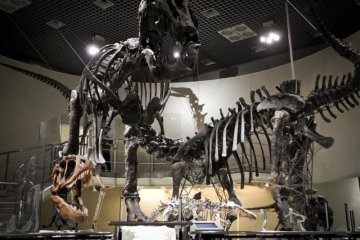
The National Museum of Nature and Science is in the northeast corner of Ueno Park in Tokyo. Opened in 1871, it has had several names, including Ministry of Education Museum, Tokyo Museum, Tokyo Science Museum, the National Science Museum of Japan, and the National Museum of Nature and Science as of 2007. [Wikipedia]

The National Museum of Western Art is the premier public art gallery in Japan specializing in art from the Western tradition. The museum is in the museum and zoo complex in Ueno Park in Taito, central Tokyo. It received 1,162,345 visitors in 2016. Wikipedia
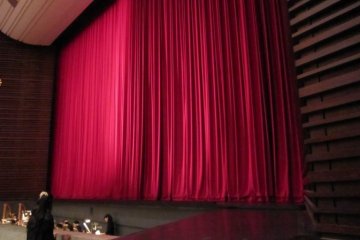
Tokyo Bunka Kaikan is a renowned concert hall located in Ueno Park, the green heart of Taito Ward. The hall opened in 1961 as a hub for arts and culture and has since played host to numerous operas, ballets, and classical concerts by both Japanese and international artists. The building itself is a feat of modern architecture and was designed by architect, Kunio Maekawa. The main hall, which features opera, ballet, and orchestral performances, is an impressive five stories high and contains 2,303 seats. Its modern interior is visually stunning, and its acoustics are world-renowned. The smaller recital hall, located on the second floor, has 649 seats and hosts almost daily chamber music concerts and recitals. In addition to its performance halls, Tokyo Bunka Kaikan is also home to an extensive music library, meeting rooms, rehearsal rooms, a restaurant, a cafe, a gift shop, and a Japanese goods and accessories store. In theme with its mission to promote the arts, the facility holds multiple workshops, competitions, and professional development programs to encourage and facilitate artistic learning.